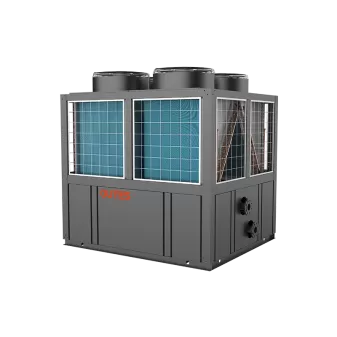The Rise of Heat Pumps in Sustainable Living

Introduction
As the world grapples with climate change and seeks to move towards sustainable energy solutions, the role of heat pumps has gained immense importance. Heat pumps are becoming a vital component in the quest for energy efficiency, particularly in residential homes. Their ability to transfer heat from one place to another efficiently makes them an attractive option for heating and cooling spaces, significantly reducing energy consumption and emissions.
The Functionality of Heat Pumps
Heat pumps work by absorbing heat from the outside air, ground, or water and transferring it indoors during colder months while reversing the process in warmer months. This dual functionality not only provides consistent indoor comfort but also significantly reduces reliance on fossil fuels. According to the Energy Saving Trust, heat pumps can provide over three times more heat energy than the electrical energy they consume, making them a prime contender in reducing carbon footprints.
Current Developments in Heat Pump Technology
Recently, advancements in heat pump technology have made them increasingly efficient and accessible. Government incentives in various countries have accelerated their adoption. For instance, the UK government aims to install 600,000 heat pumps per year by 2028 as part of its broader climate goals. This goal is in alignment with the UK’s commitment to achieving net-zero carbon emissions by 2050. Furthermore, research indicates that new models of heat pumps are being developed to operate effectively in lower temperatures, making them a viable option even in colder climates.
Barriers to Adoption
Despite the advantages, the uptake of heat pumps is still hindered by several factors. Initial installation costs can be relatively high, which deters many homeowners from transitioning to this technology. Additionally, there is a need for education and awareness among the public regarding the benefits and functionality of heat pumps. Surveys suggest that many consumers still lack sufficient knowledge about how heat pumps differ from traditional heating systems.
Conclusion
In conclusion, heat pumps represent a crucial advancement in the effort to promote sustainable energy solutions. Their ability to efficiently provide heating and cooling is unparalleled, making them a key player in the fight against climate change. As technology continues to evolve and greater emphasis is placed on reducing carbon emissions, it is likely that the demand for heat pumps will grow. Emphasis on education and financial incentives will be essential to facilitate this transition, making heat pumps a standard feature in homes of the future.







